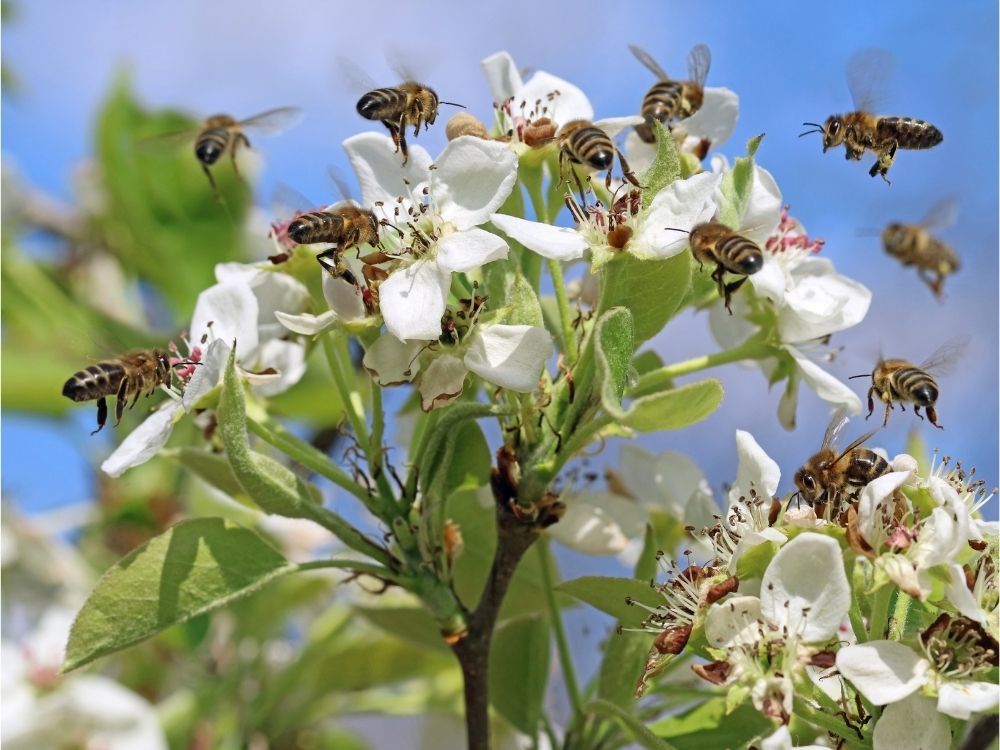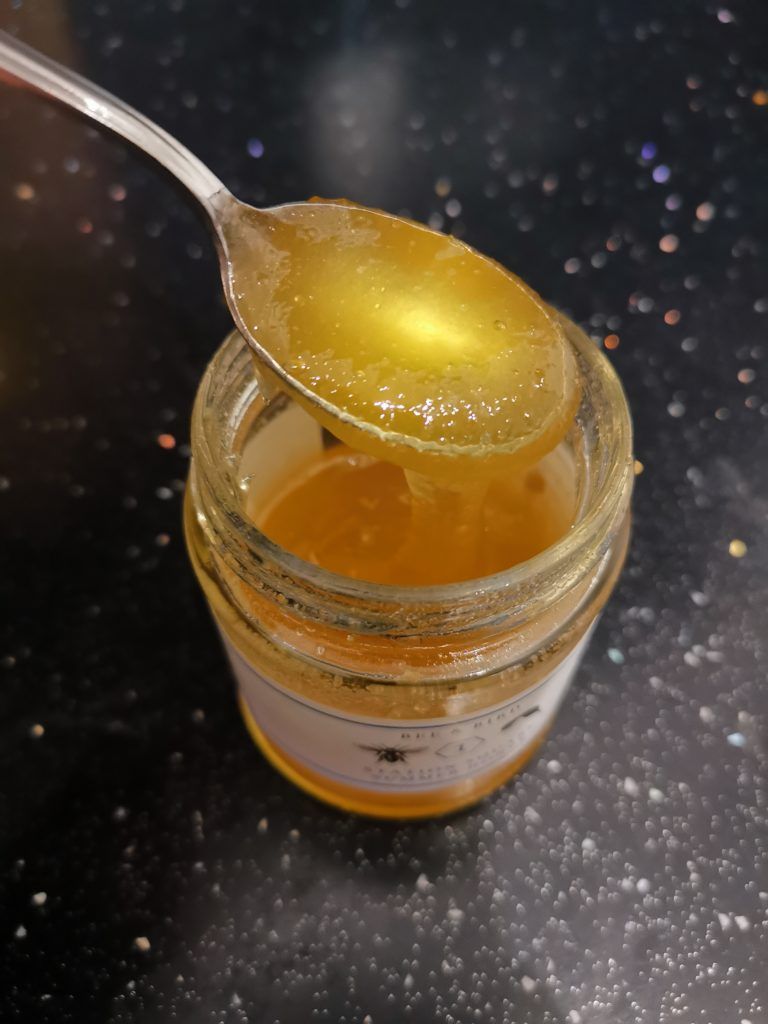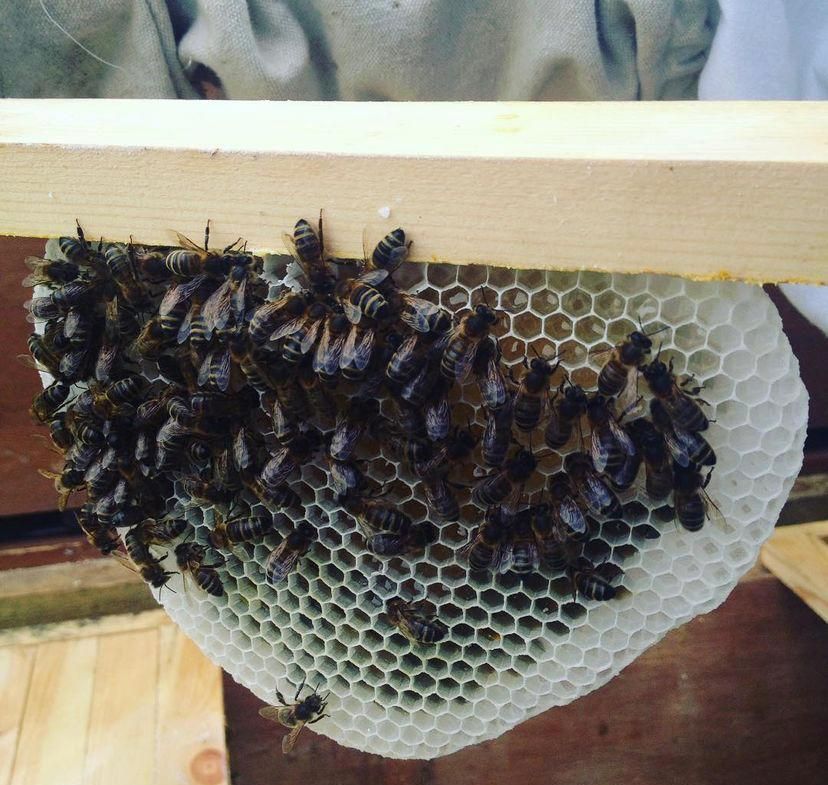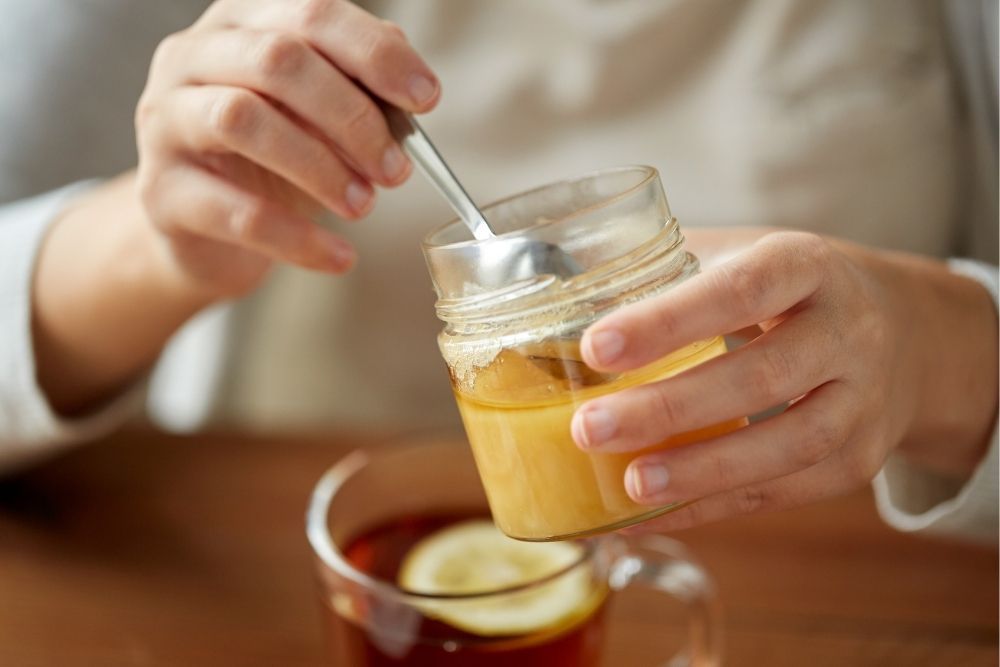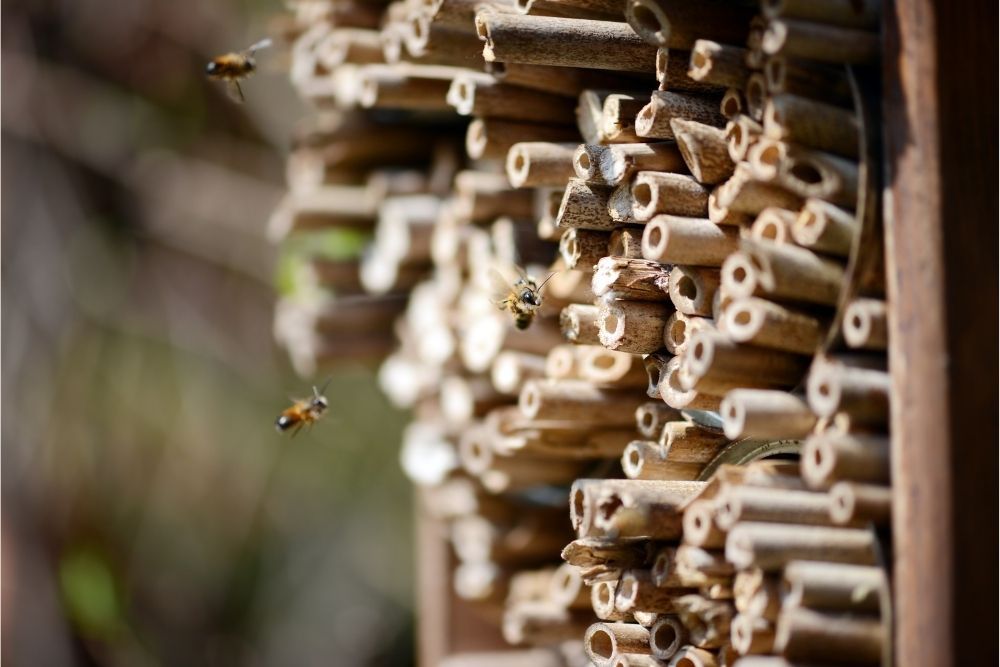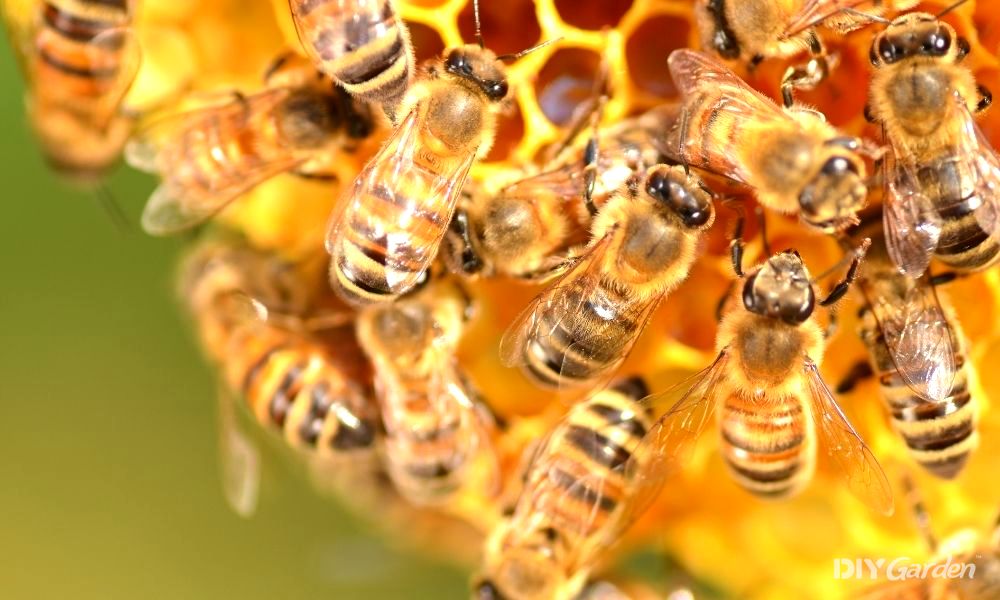
The tremendous work of bees often goes unnoticed. While a sudden buzzing beside your ear is indeed terrifying, when it comes to our yellow and black fuzzy friends, there’s lots to celebrate.
Bees ensure our survival. Without them, we would be doomed. This article gives you a bee’s-eye view of the many, many benefits of these beautiful creatures.
1. Bees Keep Your Flowers Alive
Bees buzz around in search of nectar and pollen. When they spot a sumptuous flower, they land. While doing this, they brush against the anther, which is coated in pollen.
When bees move to the next flower, the pollen from the last flower sticks to the stigma. This pollinates the plant, allowing it to produce seeds and reproduce.
2. Bees Pollinate Crops!
Farmers need bees. Bees pollinate more than 66% of crop species worldwide. Pollination is necessary to produce many nuts, vegetables and fruit. We depend on bees to feed us, and farmers depend on them economically.
3. They Ensure Plant Survival
Around 250,000 plant species rely on pollination. Without it, they would be unable to produce seeds. This would halt plant reproduction altogether.
4. Trees Desperately Need Bees
It’s not just the little plants that need bees’ attention – trees are desperate for some cross-pollination, too.
If bees die out, forget about holly, horse chestnut and hawthorn trees; they’re toast! Say goodbye to juicy plums and pears and crunchy apples. These also need bees to produce fruit.
5. Bees Improve Biodiversity
Bees pollinate all kinds of plants, from shrubs and common garden plants to wildflowers. Bees ensure that the plant population is varied and travels to all areas of the Earth.
6. Bees Are Fundamental for Food Webs
Yes, bees are essential for crop production. But what about food for other animals? Because bees pollinate such a variety of plants, they play a big hand in food production for animals and birds, too!
Without bees, birds wouldn’t have berries, and mammals wouldn’t have fruit and nuts. Cows would also struggle without a prime source of food, alfalfa.
7. Solitary Bees Have Symbiotic Relationships with Plants
Certain bee species have naturally evolved to pollinate only one plant species. Likewise, these plants can only be pollinated by this specific bee species. Without these bees, the plants would quickly die out.
8. Bees Produce Honey
Here it is, the one you’ve been waiting for. The most commonly-known benefit of bees is honey. And we love honey! Honey is a natural sweetener that has innumerable health benefits.
It’s not tainted with chemicals like most food products in supermarkets, it’s healthier than manufactured alternatives, and it’s downright delicious!
9. Bees are Ingrained in Our History
The consumption of honey goes way back in human history. Egyptian hieroglyphics relating to honey harvesting have been found.
Bees were informed of important societal events in New England in the 19th century. This included deaths, births, marriages and long journeys.
And beeswax has played a fundamental role in archaeological history, allowing us to identify different elements in organic residue.
10. Honey Improves Your Health
Raw, unprocessed honey contains heaps of bee propolis, pollen, and antioxidants. It is antibacterial, helps to heal wounds, and reduces inflammation.
The antioxidant properties of honey help to remove free radicals from your body, lowering oxidative stress and reducing the risk of multiple cancers and other health conditions.
11. Beeswax Prevents Chapped Lips
Beeswax can be made from the honeycomb. The natural emulsifiers within beeswax moisturise the lips, making it a popular choice in lip balms.
12. Beeswax Protects Cheese
It’s common to see cheese wrapped in a layer of beeswax. Beeswax prevents mould growth and also helps cheese keep its moisture. It’s 100% organic and biodegrades, which means no plastic waste!
13. Beeswax Keeps Your Furniture Shiny
Beeswax is a vital component of leather and wood polish. It gives furniture a natural-looking finish by forming a shiny coat over the top of the material. High-carbon paraffin within beeswax seals the wood, preventing sunlight and moisture damage.
14. You Need Bees to Create Candles!
Beeswax candles have stood the test of time, dating back to the 6th century A.D. Even now, they’re still a popular choice in shops. Beeswax candles benefit from being 100% organic and chemical-free.
Compared to paraffin candles, beeswax candles have a higher melting point. This means they last longer!
Making beeswax candles is also a growing hobby, giving many people joy world wide.
15. The Pharmaceutical Industry Needs Beeswax
Beeswax has many uses in the pharmaceutical world. It is used as binding agents, drug carriers, and modified-release mechanisms frequently used in medications. Beeswax also heavily features in the makeup world!
16. Honey Can Fight Off Illnesses
Honey contains propolis, an antibacterial component that helps fight off particular illnesses and lessens the symptoms of others. It has been used as an ailment for bacteria, infection, and wounds in the past.
And we don’t make lemon and honey tea when we’ve got a cold for the sake of it! Honey helps to soothe sore throats.
17. Honey is Used in Traditional Medicine
Although unconfirmed by scientific research, there is some belief that honey can be used to treat a long list of conditions, including constipation, fatigue, thirst, eczema, haemorrhoids, eye diseases, throat infections, tuberculosis, and more.
18. Honey Bee Venom Kills Cancer Cells
In 2020, a study focusing on the link between honeybee venom and breast cancer found that a specific element of honeybee venom could kill cancer cells. Further research is needed to fully explore this relationship.
19. Bees Are a Symbol of Immortality
Ancient Greek society believed that bees symbolised immortality, sharing a close relationship with the human life cycle. The importance of bees was carefully considered by our ancestors.
20. We Learn From Bees
We could all learn a thing or two from bees. And rest assured, we have. The characteristic hexagonal shape of honeycomb has been used in science and engineering.
In fact, the hexagon is the best shape for storage. You can closely pack hexagonal objects, making a highly efficient storage solution.
We have also studied the social interactions of bees and their many exciting mannerisms. It’s believed that, by doing this, we can determine the safest way to evacuate a crowded area quickly.
21. Bees Boost Our Economy
The market for bee products is vast. Honey brought in just under £30 million in the UK in 2020 alone. Bees’ role in UK crop production also amounts to approximately £600 million a year.
And that’s just two of the thousands of bee products!
22. Bees Benefit Elephants and Protect the African Population
Bees are being used in developing countries such as Africa to deter elephants. The speedy increase in human numbers has strained the elephant population. Elephants frequently raid human crops due to the reduction in their habitat.
But one thing elephants are terrified of is bees. Beehives are being placed beside crops to keep elephants away. This results in better crop yields for humans and fewer elephant killings.
23. Bees Can Sniff Out Explosives
Did you know that bees can be trained? It was news to me, too. Sniffer bees, taught through a combination of learned association and sugar water, can detect explosives, drugs, radioactive metals, and pesticides.
24. Bees Indicate the State of Our Environment
The number of bees within our environment, and the state of their health, can help us determine the overall health of our environment.
Bees are affected by the same environmental factors as other pollinators. So if bee numbers go down, the others are going down too.
Furthermore, honey can be sampled and analysed to check pollution levels. This allows us to keep track of the harmful pollutants.
25. Honey is a Healthy Alternative to Sugar
Replacing sugar, maple, and golden syrup with honey can drastically benefit your health. Honey has a lower glycemic index, which is good news for diabetics as it doesn’t play havoc with your blood sugar levels.
But pick an organic, raw variety! These are packed with nutrients, vitamins, antioxidants and enzymes rather than harmful sugars and chemicals.
Summary
Bees keep plants, mammals and birds alive. Pollination aids crops, plants, and trees, allowing us to enjoy the fruits (and vegetables!) of our labour.
Bee products have numerous health benefits, preventing certain illnesses and lessening the symptoms of others. And if all that weren’t enough, honey is simply delicious!
We certainly have a lot to learn from these magnificent creatures. Our ancestors recognised the rewards of bees – we should, too.
